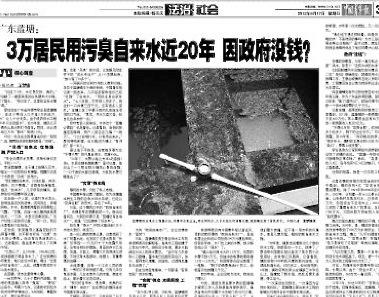Beidaihe is the secretive vacation resort for the top leaders of the Chinese Communist Party (CCP). The summertime meetings held there are where almost all the strategic decisions of the CCP are made and internal conflicts are sorted out.
According to a report by BBC’s Chinese-language website, there is a hidden Beidaihe in addition to the areas open to the general public. “Behind the security barriers is a luxury resort surrounded by forest where the beaches are empty and the sea is blue and clear; this is where the CCP leaders vacation and where CCP leaders gather each summer to hold meetings and make major decisions.”
The December issue of China Economic Weekly reported that the lines of vehicles present during the summer have all disappeared. Some of the resort’s buildings still have guards, but others had doors sealed with wooden planks.
Apple Daily (Hong Kong) reported on Aug. 9 how, after the Wenzhou train crash tragedy on July 23, 2011, the Politburo Standing Committee members were nowhere to be found. While Wen Jiabao did visit the scene, all the other members were incommunicado for 16 days.
The columnist claimed, “The highest ranking leaders all went to Beidaihe and suspended their official activities to meet in secret and to discuss the distribution of power after next year’s 18th Party Congress.”
A Working Tradition
Beidaihe, 171 miles from Beijing, is a district of Qinhuangdao in Hebei Province and was a famous vacation destination during the closing years of the Qing dynasty. Since 1953, the CCP leaders “traditionally” worked in Beidaihe during each summer. Officials at various levels will go there to rest and recover for a month.
Since the days of Mao Zedong, CCP leaders will “work” in Beidaihe during the hot summers and consequently many local areas have been restricted to the public. After taking office in 2002, Hu Jintao announced an end to “working in Beidaihe,” but in reality, the tradition of vacationing there didn’t end.
During Aug. 17-30, 1958, the CCP Politburo held a Beidaihe meeting, which made the decision to make iron and steel as the center of a Great Leap Forward movement and a new wave of the “people’s commune movement” took off in mainland China.
The subsequent crop of backyard steel furnaces led to a horrific famine for which no one in the CCP’s higher echelons was blamed.
According to China Economic Weekly, every building in Beidaihe receives substantial state subsidies. Calculating an estimate based on each building’s requiring one million yuan (US$150 thousand) in annual operating costs, then the nearly one hundred buildings would require more than 100 million yuan (US$15.7 million dollars).
Power Play
Whenever an exchange of power is imminent, the meetings at Beidaihe become even more important.
According to a report by Radio Free Asia commentator Lin Baohua on Aug. 9, the “Summer Work” at Beidaihe is “actually where the struggle for power and influence happens among CCP central leaders and especially where the older generation tries to exert political influence. Some older officials do not have a title and can’t attend official meetings, so they ‘work’ at Beidaihe. They attend meetings and hold private discussions so that they can exercise their influence.”
Hong Kong’s Dong Xiang magazine claimed in its September issue that Bo Xilai was the big loser at this summer’s Beidaihe meeting. During the meeting, “no one nominated Bo Xilai; during a straw poll, Bo Xilai placed last with a big gap between him and the next person.”
Boxun reported on Aug. 6 that Politburo Standing Committee member Jia Qinglin has “given up his nomination rights for his successor and the provincial level party secretaries and governors under his command.” The alleged reason was Jia’s ties to Lai Changxing, who had been recently extradited to China from Canada to face corruption charges.
From this brief glimpse into the secretive workings of the Party, it’s clear that “fun in the sun” for CCP leaders can mean “stormy weather” for regular Chinese.
Read the original Chinese article.



